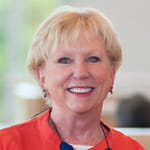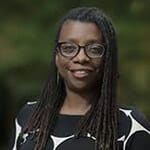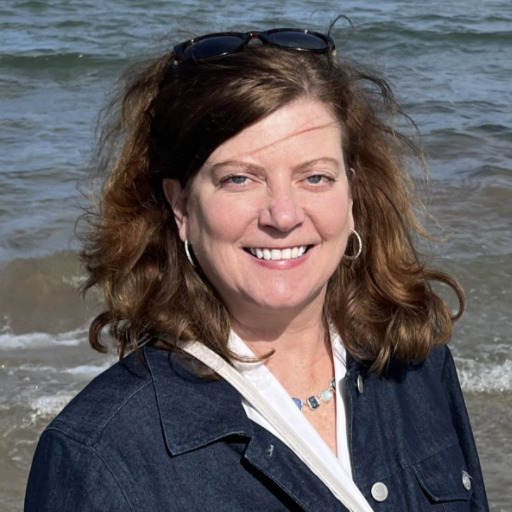Developing a Comprehensive System of Support for First-Generation Students
This event has ended.

Developing a Comprehensive System of Support for First-Generation Students
This event has ended.
Strategize ways to engage and support your first-generation undergraduates.
Event Information
Many college campuses are celebrating the fact that their first-generation (“first-gen”) undergraduate student population has grown exponentially in the past five years, with some reporting 24-40% of their student body identifying as first-gen. However, we know that institutional and external barriers, such as varying definitions of “first-gen” and the hidden curriculum, can create roadblocks on the path toward graduation.
This virtual conference is designed to give you a variety of tools to better support your first-gen population and give them the best chance for success. Our speakers will highlight their own experiences and approaches in responding to the needs of first-gen students. They will also discuss the strengths that first-gen undergraduates bring to our campuses and address ways that institutions can proactively meet first-generation students where they are. You will learn how to:
- Take an intersectional approach to break down barriers to academic success.
- Create connections with families to foster holistic student support.
- Build a network of career resources to help students navigate an uncertain job market.
- Define success and develop holistic forms of program assessment.
Throughout these two days, we will examine comprehensive models of how institutions can help their first-gen undergraduate students thrive on campus and complete their degrees. The speakers bring a proven and diverse set of perspectives from each of their unique backgrounds. You will learn what first-gen students need to succeed and will begin creating or improving your support system for your first-gen students.
Who should attend?
This program is ideal for professionals who offer academic support to first-gen students and lead student success initiatives—whether from two-year or four-year institutions. In addition, we recommend attendance from leaders in the following areas:
- Academic Affairs
- Student Affairs
- Enrollment Management
- Admissions
Agenda
Day One, Tuesday, December 5, 2023
Welcome and Introductions
11:00 – 11:15 a.m. ET
Defining First-Gen
11:15 a.m. – 12:15 p.m. ET
In our first session, we will begin with the deceptively simple task of defining what it means to be a first-generation student and why it is important to craft a definition in the first place. Definitions, which impact qualifications for programs and aid, vary across institutions, agencies, and governments. Some first-gen students may not be aware of the first-gen identity and how it can help them to navigate their college journey. Our speakers will introduce themselves by sharing their takes on the definition and what it means from their own personal experiences, as well as from their institutions. Participants will then be encouraged to introduce themselves as well as where their institutions currently stand.
College Knowledge: Helping First-Gen Students Acclimate to Academia
12:15 – 1:15 p.m. ET
One of the more nuanced challenges that many first-gen students face is how to acclimate to college. Being the first in your family to go to college is an exciting and admirable accomplishment. However, many of these students find themselves missing a “hidden curriculum” that can include how to study and manage time, how to access resources, how to interpret college jargon, and how to be involved and get the most out of the college experience. This session will highlight successful programs that have shown a positive impact on helping first-gen students thrive, not just survive, in college.
Long Break
1:15 – 1:45 p.m. ET
Setting the Stage for First-Generation Success
1:45 – 2:45 p.m. ET
Setting up first-gen students for success begins before the first day of class. In this session, you will learn how institutions have provided programs prior to the beginning of the term that help first-gen students to connect to their new environments and prepare for the exciting journey ahead of them. Our experts will give you insights into the organizational structure of their first-gen support programs and how mentoring programs can contribute to first-gen success.
Break
2:45 – 3:00 p.m. ET
The Importance of an Intersectional Approach: Supporting Black First-Gen Students
3:00 – 4:00 p.m. ET
While there are several experiences common to most first-gen students, it is nevertheless important to recognize the vast diversity among first-gen students and their needs. In this session, we’ll examine an intersectional approach to celebrating and supporting first-gen students with a special focus on strategies to support the success of Black first-gen students, in the context of both the aftermath of the pandemic and of racial injustice. While this specific session is dedicated to an intersectional approach, this lens will also be woven throughout the entire program.
Day 1 Wrap-Up
4:00 p.m. – 4:15 p.m. ET
As we conclude our first day together, you will have the opportunity to ask the speakers questions and connect with other attendees around shared challenges and opportunities.
Day Two, Wednesday, December 6, 2023
Engaging Faculty & Providing Academic Support for First-Gen Students
11:00 a.m. – 12:30 p.m. ET
From providing provisional admission with support, to reducing the time to degree completion, institutions that are successful with first-gen students provide a myriad of resources that engage and support students academically. Our experts will share examples of successful programs that have provided academic support to help first-gen students overcome hurdles and obtain their degree, as well as new strategies they’ve had to implement to support students facing challenges in the aftermath of the pandemic.
Break
12:30 – 12:45 p.m. ET
Connecting Families of First-Gen Students to the Institution
12:45 – 1:15 p.m. ET
One of the keys to retaining first-gen students is to make their families feel welcome and connected to the student’s educational experience. We will discuss how to engage parents and guardians as partners in student success and how to help both the student and their family through this transition, including: creating activities that help to bridge cultural gaps, including parents/guardians in activities, and giving students tools for communicating about their college lives. Our speakers will share the evolving family challenges students face as they navigate a socially distanced college experience and remote learning.
Mentoring and Career Considerations for First-Gen Students
1:15 – 2:15 p.m. ET
Many first-gen students may not have a broad understanding of the variety of industries or job options available upon graduation. In this session, you will hear how other universities have helped first-gen students to explore their many career possibilities and make informed decisions about their degrees. You will also learn how students can tap into their existing strengths in order to be prepared for an uncertain future.
Long Break
2:15 – 2:45 p.m. ET
Funding and Assessment: Making Your Case through Data and Stories
2:45 – 3:45 p.m. ET
In this session, our speakers will share their knowledge and hands-on experience obtaining funding to support their first-gen initiatives, including national recognition programs like First-Gen Forward and First Scholars. They will discuss defining and redefining success beyond graduation and retention for a more holistic approach to assessment and will then share how their institutions have utilized assessment data on the impact of their first-gen support programs to make the case for additional programming and resources.
Celebrating First-Gen Students, Faculty, & Staff
3:45 – 4:15 p.m. ET
Institutions often struggle to support first-gen students, as many of these students hide their status or are unaware that they may qualify as first-gen. By helping students to self-identify, your student support teams are better able to connect them with first-gen faculty, alumni, and other students. Hearing from others who have had similar experiences and learning how they coped with, and managed, various difficult challenges can be the catalyst the first-gen student needs to feel valued and understood and to complete their degree successfully.
NOTE: We encourage you to share examples of your first-gen “swag” or other communications when we discuss how to identify and celebrate first-gen faculty and students on your campus.
Conference Wrap-Up and Final Q&A
4:15 – 4:30 p.m.
Tagged In

Daphne Rankin, PhD
Associate Vice President for Special Programs, Virginia Commonwealth University

La’Tonya Rease Miles
Director of University Partnerships, ReUp Education and Adjunct Faculty, Santa Clara University
Developing a Comprehensive System of Support for First-Generation Students
Want a discount? Become a Member, or Login if you are already a member.
Number of Attendees:
Enter attendee details below if you know them. If not, don't worry. You can provide attendee information at any time before the event.


